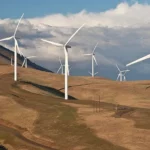KARACHI: Following the startup financing boom in Pakistan, rapid delivery startup, Krave Mart, has raised $6 million, the country’s largest early-stage funding.
The Karachi-based company, which guarantees deliveries in 10-minute, raised the said amount in its pre-seed funding round, which was led by MSA Capital, ru-Net, Global Founders Capital and Zayn Capital, according to Chief Executive Officer Kassim Shroff, Bloomberg reported.
“Quick-commerce has emerged as the most sought-after sub-segment in venture capital over the last few years,” according to +92Ventures, one of Krave Mart’s investors, referring to quick deliveries via the internet.
Read More: 2021 termed fantastic year for Pakistan’s startup ecosystem
The startup’s competitors include Airlift, Pakistan’s most-funded startup that raised $85 million in August ahead of its international expansion, and Berlin-based Delivery Hero SE’s food panda. Shroff, who is also co-founder, believes neighborhood grocery stores are the real competition.
The company, which launched in Karachi, plans to expand its business to 10 more cities in the country by the end of the first quarter of next year. It also eyes to enter Sri Lanka, Nepal, and Bangladesh. In addition, it intends to start offering fashion and electronics among other categories, the report said.
Referring to the country’s young population, mobile users, and funding frenzy, Kassim Shroff in an interview underlined, “We are where India was 10 years ago. It will take us just 2-3 years to catch up because the ecosystem really favors us.” While adding, he stated, “We felt there is a huge space.”
Quick commerce “is a hyper-fragmented and inefficient experience” in Pakistan, said Tim Chen, general partner at MSA Capital. “We’ve benchmarked and invested in similar models globally and believe Pakistan is a market ripe for disruption.”
With global investors pouring money into the world’s fifth-most populous nation, Pakistani startups have received a major boost this year, getting over $300 million funding which is more than the previous six years combined.


